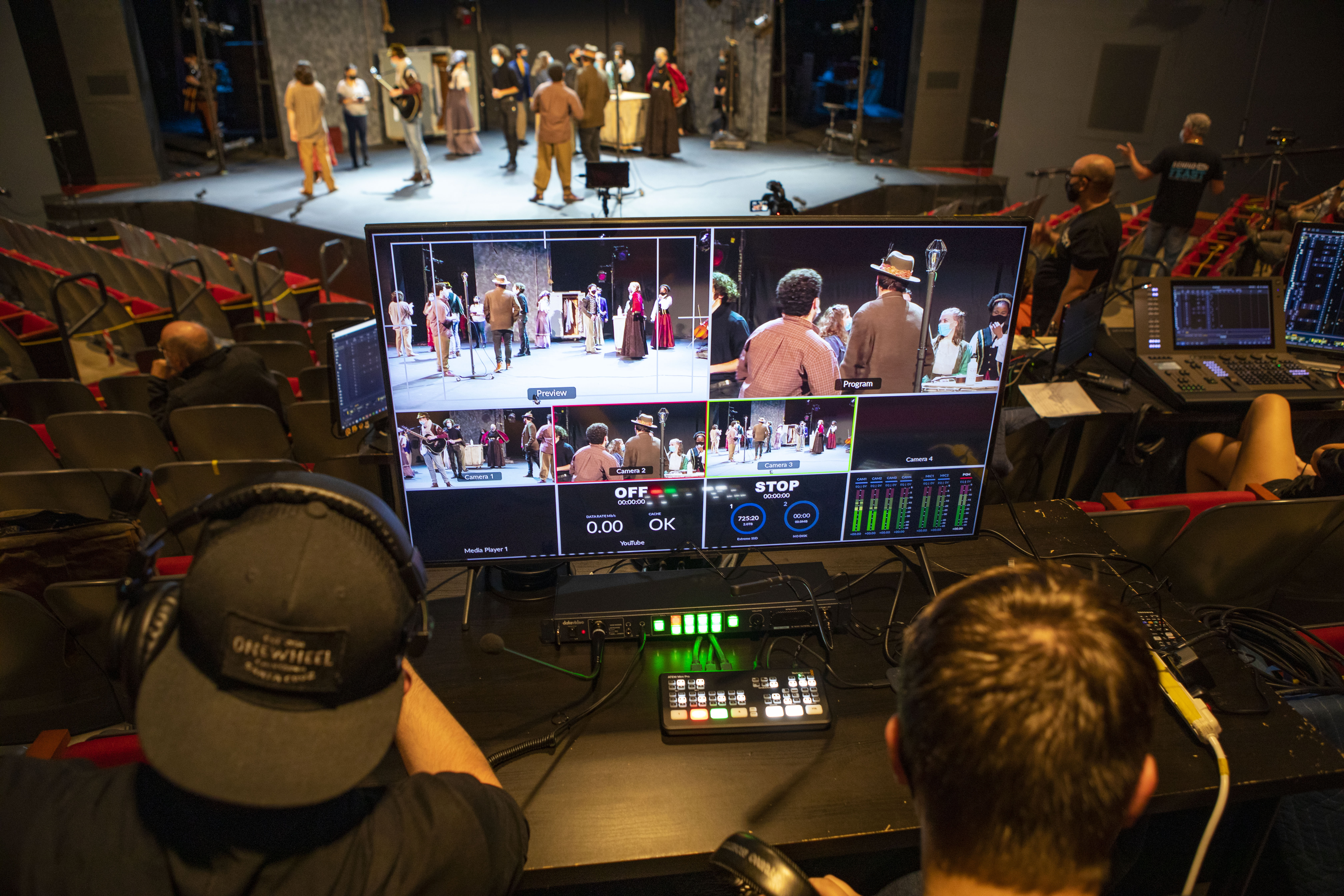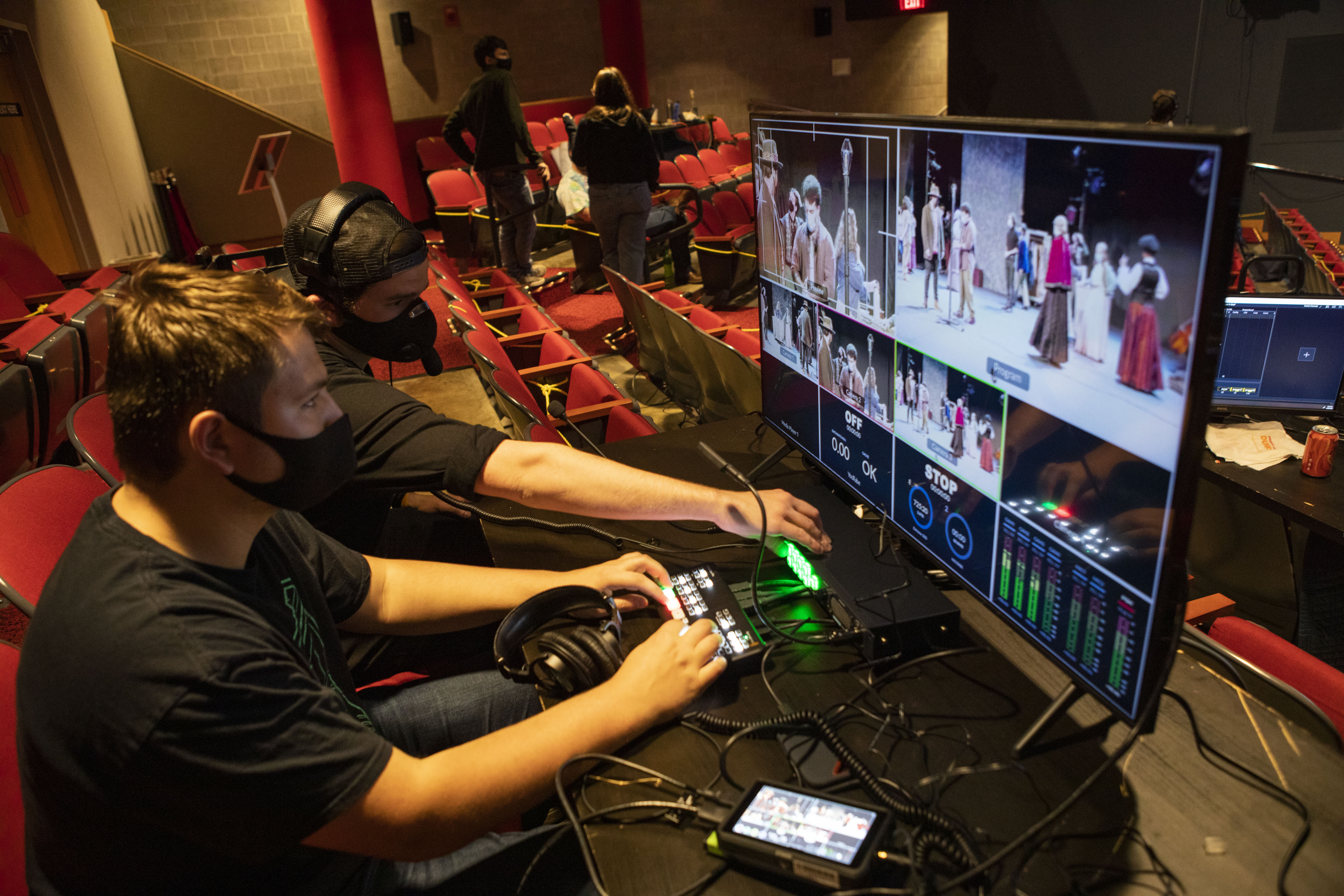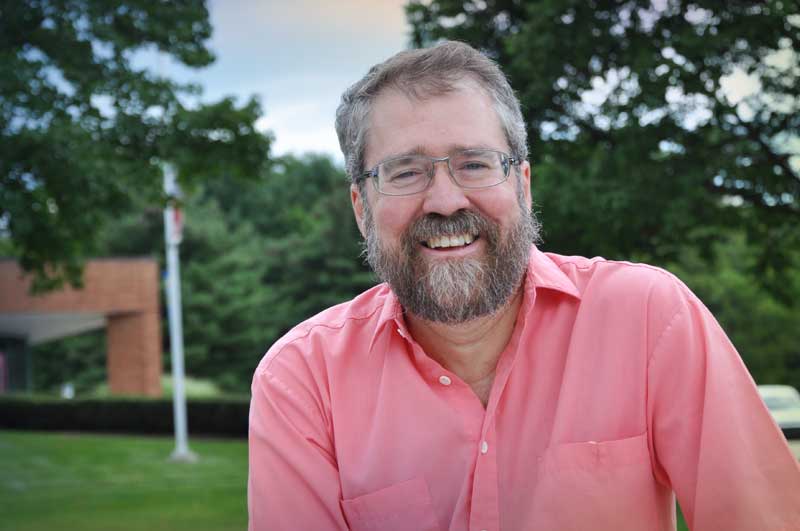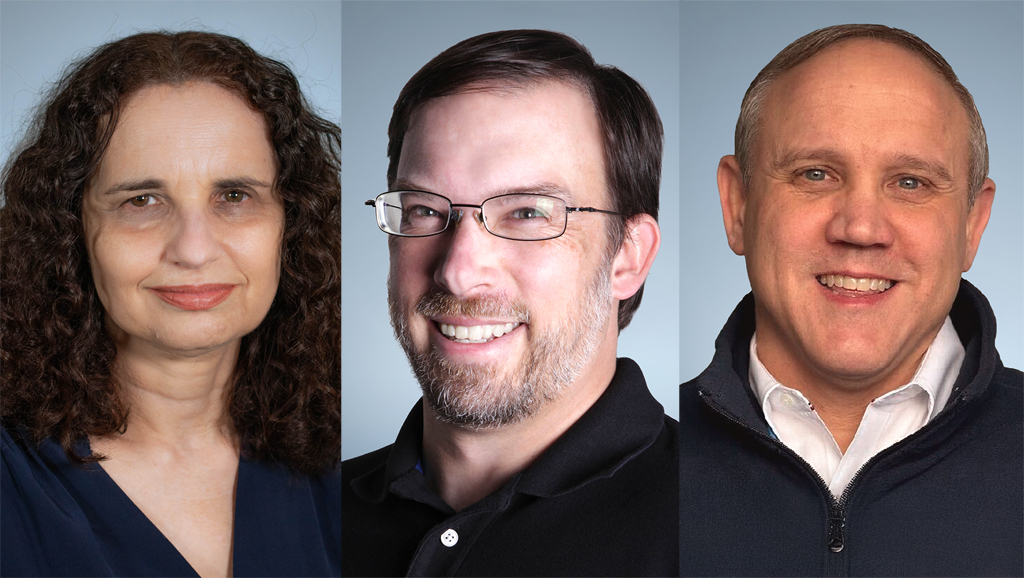DeSales University Students Record Live Productions
Being graded as crew members, the students received real-world experience

The professional video industry's #1 source for news, trends and product and tech information. Sign up below.
You are now subscribed
Your newsletter sign-up was successful
DeSales University, in Center Valley, Pa., usually puts on eight live theater productions each year, four in the fall and another four in the spring. Due to the pandemic, audiences were not permitted to attend the productions. That left the Division of Performing Arts with two options: cancel the performances or capture them and make the videos available online, which was the way they chose to go.
A team of 20 undergraduate TV/film majors participated in the live theater productions as part of their Practicum class. A traditional Practicum class is where a student writes, produces, directs, shoots or edits their own production or works as a crew member on another student’s project. The university took this one step further by creating a Master Class, hosted by Digital Feast, an Allentown, Pa.-based production company, where the students became the filmmaker, learning all the facets of a multicamera live production to create a marketable end product.
Being graded for their performance on the crew, the students received real-world experience through hands-on learning.
EQUIPMENT NEEDED
With less than $10,000 to spend on equipment, the choice of the best technology was critical. Beginning the process in July for a September startup might sound like a long preproduction period. However, the cameras and switcher proved to be the most difficult pieces of equipment to acquire because of long backorders.
The university purchased three Panasonic HC-X2000 UHD Camcorders because of their size, features and ability to record on SD media. Mounted on Libec Fluid Head tripods, the students could monitor their camera feed through the LCD monitor and were given camera direction through a Datavideo ITC100 Wired Intercom. Each of the three camera operators and the director could communicate through the 500-seat theater.
The Blackmagic Design ATEM Mini Pro Switcher gave students the capability to capture up to four camera feeds via 50-foot HDMI cables, output to a Multiview image on a Samsung 43-inch monitor and export the switched footage to a Atomos Ninja V 5-inch recorder while also having a backup feed recorded to a SanDisk Extreme Pro 2 TB SSD drive.
A stereo mix, utilizing Sennheiser shotgun microphones on the left and right of the stage, came from the theater’s soundboard to the Zoom H4N Pro four-channel recorder. All HDMI, 5-pin XLR and AC cables were taped down to avoid issues in the darkened theater.
The professional video industry's #1 source for news, trends and product and tech information. Sign up below.

REHEARSAL
Since Digital Feast, creators of the Master Class, assisted with directing/overseeing of the shooting and editing of these productions, this meant the students were working with industry professionals. Weeks before the production began, as the faculty in charge, I met with Digital Feast and the students via Zoom to educate the students on what was expected and to fairly rotate the crew’s roles. The technical director would physically switch the shots; the director operated the intercom; cameras 1, 2 and 3 each had two assistants (first and second AC); a sound person monitored the recorded feed; and a digital imaging technician (DIT) collected all of the recorded material.
Knowing what is going happen on stage and when is critical for properly switching a live event. We attended two evening rehearsals to better gauge camera placement, shots and framing. We actually recorded two performances because of a double cast—one each evening. This preplanning saved mistakes during production.
RECORDING THE EVENT
Practicing social distancing, all crew members wore masks, and those on stage would remove their masks only when recording began. Throughout the 80-minute production, the student actors were always six feet apart.
Cameras were placed house left, right and center about four rows up with the tripod straddling the seats. AC and HDMI cables were gaffer taped to the tripod and each operator had the intercom belt pack attached. Three people crewed each camera with the operator switching roles.
Before the production began, “Roll Sound” was called followed by “Roll Cameras.” With a hand slate, the production started with each camera recording 3820x2160, 23.98fps UHD and an audio scratch track to its SanDisk Extreme Pro SDXS 128 Gb card. Having a second 128 Gb card in the camera’s B slot gave us more than enough storage.
The performance was switched with the ATEM Mini Pro Switcher, which outputs both a live stream and an HD 1920x1080 MP4 file. Not using the ATEM’s Ethernet port, we only utilized the recorded stream. We had redundancy with each camera’s isolated feed (ISO) recording and if a shot was switched too soon or too late, we had the ability in post to correct it using the Multi-cam Editing feature.
Even after attending rehearsals, a live event can be unpredictable. Actors could miss their mark; focus might be soft from the on-air camera; and various other issues that might warrant another take. At the completion of the performance, particular scenes/shots were restaged to better capture close-ups.
At the end of each evening, the DIT would collect the SD cards from the cameras (correctly labeled), Zoom recorder, Ninja SSD and ATEM SSD drives to ingest into the computer. Only after having two backups of the captured material, would the original SD cards and SSD drives be reformatted for the next evening.
POST PRODUCTION
The students were also involved in the editing process, attending the remote session via Zoom. Digital Feast, using Blackmagic Design’s DaVinci Resolve Studio, placed the ATEM’s switched recording on a video track and the three ISO feeds on top of the mixed audio channel’s track. The Multicam feature allowed the ability to recreate an edited master (including the close-ups) as needed.
This hands-on approach is what has separated DeSales from other universities. Students, in their freshman year, are using the equipment and working alongside professionals on productions. Not only have they gained valuable experience and networked with industry experts, but they have learned skills that can’t be taught in the classroom. It is also a win/win situation for the performance students. The old saying, “The show must go on,” actually did, just in a different medium that could be presented to a larger audience.
If you are interested in seeing this completed production or any other performance online, tickets can be purchased at https://tickets.desales.edu.
Chuck Gloman is an associate professor in the TV/Film Department at DeSales University. He can be reached at chuck.gloman@desales.edu.
Chuck Gloman is Associate Professor with the TV/Film Department at DeSales University.

